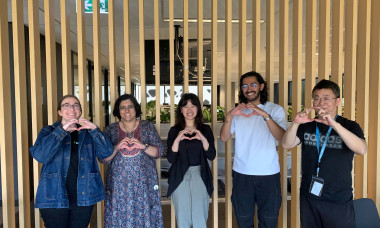Glimpsing into the future for Education
The TAFE market is constantly evolving to meet the changing needs of students, industries, and the job market. As we enter 2024, several significant trends are shaping the education landscape.
Micro-Credentials and Short Courses
In response to the rapidly changing job market, there is a deepening demand for compact, specialized courses known as micro-credentials. TAFE institutions are at the forefront of meeting this demand, offering concise, skill-focused programs that can equip students with job-relevant expertise. This trend is particularly amplified by reskilling and upskilling programs aimed at assisting workers affected by automation or shifting industries, to acquire new skills and pivot into alternative career pathways. A key enabler is the close collaboration between TAFE and industries to design courses that align precisely with current and future labour market needs.
Simultaneously, the need for digital literacy and technology-related skills continues its ascent across various industries. TAFE institutions are strategically offering courses in domains like cybersecurity, data analytics, and digital marketing to address this surging demand.
Interoperability
The era of all-in-one educational systems that met every educator's needs has faded into history. The prevailing reality underscores the significance of interoperability and integration across a diverse range of technologies and products supporting education, student management, and learning.
This trend of specialized, best-of-breed technologies working in harmony and sharing data as an ecosystem is increasingly prevalent. The maturation of cloud-based Software as a Service (SaaS) offerings contributes to this trend. It means that educators are no longer bound to an all-in-one system; instead, they can seek tailored solutions that effectively address specific challenges.
The trend towards interoperability is exemplified in the experiences of institutions such as CIT’s construction team. They harnessed the power of ReadyTech's Ready Skills platform, integrated with innovative virtual reality software, to support learning and skills tracking in remote environments. This seamless integration not only enhances operational efficiency but also augments the experiences of staff and students, while facilitating data-driven decision-making in real-time to optimize innovation and agility.
As we progress into 2024, the march toward interoperability is set to accelerate, with specialist vendors, tools, and systems proliferating. In tandem, cloud-based SaaS providers are expanding their networks of best-of-breed integrations through Application Programming Interfaces (APIs), underpinning a future of greater educational fluidity and efficiency.
Generative AI
Generative AI emerges as a game-changer within the TAFE market. This technology harnesses the power of data analysis to create tailor-made learning materials for students. By discerning individual learning styles, preferences, and progress, AI can generate content that precisely suits each student's needs, including personalized study guides, practice exercises, and interactive simulations. Additionally, educators at TAFE institutions are tapping into generative AI to streamline the creation of course content and curricula, alleviating the burden of content creation and allowing educators to devote more time to teaching. Furthermore, generative AI is facilitating language learning through real-time translation and pronunciation assistance, making language courses more effective and inclusive for diverse student populations.
Generative AI also plays a pivotal role in automating the assessment and feedback process, offering students rapid insights into their performance and areas for improvement. Moreover, it simplifies complex course materials, making content more digestible, which proves particularly beneficial for students with diverse learning needs and those requiring accessible content due to disabilities.
Augmented-Connected Workforce
The concept of an augmented-connected workforce in TAFE signifies the seamless integration of augmented reality (AR), virtual reality (VR), and advanced technologies into education. This approach aims to bridge the gap between academic knowledge and practical application, preparing students to be more job-ready by immersing them in real-world scenarios.
AR and VR technologies offer students immersive learning experiences, simulating work environments pertinent to vocational training. This is invaluable for fields like healthcare, allowing students to practice surgical procedures, or in construction, where they can engage in virtual building projects.
Moreover, the technology enables hands-on training without the need for physical equipment. In disciplines like automotive mechanics, students can diagnose and repair vehicles by overlaying virtual representations of car engines and systems onto real vehicles.
In summary, TAFE institutions are embracing a multitude of innovative approaches, from micro-credentials to generative AI and augmented-connected workforces, to ensure students are equipped with the knowledge and skills needed for the modern workforce. These advancements address the evolving needs of both students and industries while enhancing accessibility, customization, and practicality within the education sector.
To learn more about how ReadyTech can partner with you to stay ahead of the curve click here.





